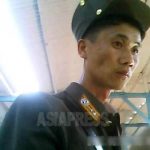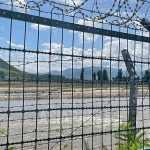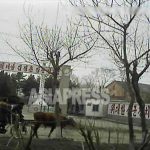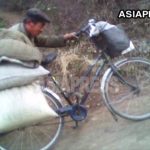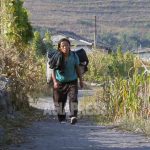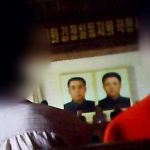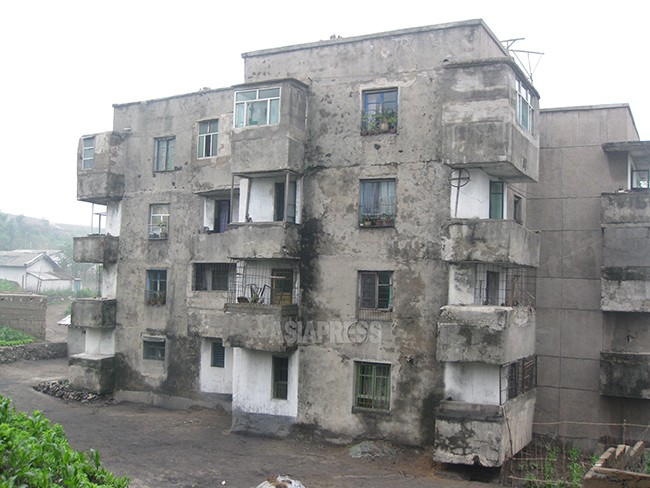
North Korea promotes itself as a socialist country, and most of its housing is owned by the state. Over the past 25 years, however, a housing market has existed that has allowed people to buy and sell housing units in secret in Pyongyang and other areas of the country. Recently, the Kim Jong-un regime has moved to intensify crackdowns on these housing transactions as shown by a recent report from an ASIAPRESS reporting partner inside the country. (KANG Ji-won / HAN Ha-yu)
◆ The authorities suddenly crack down on housing transactions
In late June, an ASIAPRESS reporting partner living in the northern area of the DPRK provided the following report:
“The head of my inminban (neighborhood watch unit) started an intensive investigation into people moving homes, living together, and the selling of houses. Officials are telling people to register if they haven’t properly completed their residence registration or in cases where relatives visit their homes, there’s been family disharmony, or families live separately from one another.”
Originally, the investigation was aimed at cracking down on people illegally living together or those who have deserted their assigned workplaces; however, the target is now housing transactions. The authorities are using inminban – the country’s lowest level administrative unit – to understand people’s housing conditions and have started to implement restrictions on housing transactions that used to be conducted openly, handing out punishments as well.
◆ Buying and selling state-owned houses is established practice, but…
Housing is supposed to be free in North Korea, but the country faced a worsening housing shortage starting in the 1960s. When the state’s ability to supply housing failed to meet growing demand driven by an increase in population, it became common for people to share housing.
A severe famine in the mid- to late 1990s caused a massive number of deaths, leading to the emergence of many unoccupied houses. As a tragic last attempt to survive, poor people tried to sell off their homes, which increased the supply of housing inside North Korea. These houses then began to be openly bought and sold. The buying and selling of housing included the sale and purchase of residential registration cards, so that housing that included high-rise apartments in Pyongyang to tiny, old houses in small provincial cities began being placed on the market.
◆ Sudden ban on housing transactions causes spread of anxiety
ASIAPRESS reporting partners said that recent efforts to crackdown on the housing market are aimed at preventing members of the donju (the DPRK’s wealthy entrepreneurial class) from selling houses they built to private buyers:
“The donju pay city construction teams or trading companies to build houses, which are then sold to private buyers or organizations. I’ve heard there’s been an order handed down calling for severe legal punishments to be meted out against anti-socialist behavior like this.”
*City construction teams: Construction companies operated under the auspices of city government agencies.
Moreover, there are rumors that even housing transactions that took place before the recent order will be subject to investigation, which has caused increasing anxiety among donju and ordinary people. Housing transactions have always been illegal in the DPRK, but if the regime moves to completely ban such transactions – which have been part of a housing market that has existed for almost 25 years – chaos is expected to emerge not just in North Korea’s economy but also in the lives of its citizens.
※ ASIAPRESS communicates with its reporting partners through Chinese cell phones smuggled into North Korea.
- <Inside N. Korea>Even the police face temporary cut in rations due to financial troubles… “In May, they had no choice but to buy food on credit”
- <Inside N. Korea> Daycares and preschools stop providing meals due to financial troubles…Parents facing demands for rice and money protest by turning their backs on the schools, sending their kids to neighbors instead
- <Investigation>100 soldiers surround farming community of 500 farmer to prevent stealing of crops…Military-Farmer relations improved
- <Inside N.Korea> Spring wheat harvest is finished and delivered to the army・・・Farmers rebel without their share
- <Photo Report> A visit to a North Korea-China trade hub…Freight trucks line up to head into North Korea, but drivers not allowed to leave vehicles
